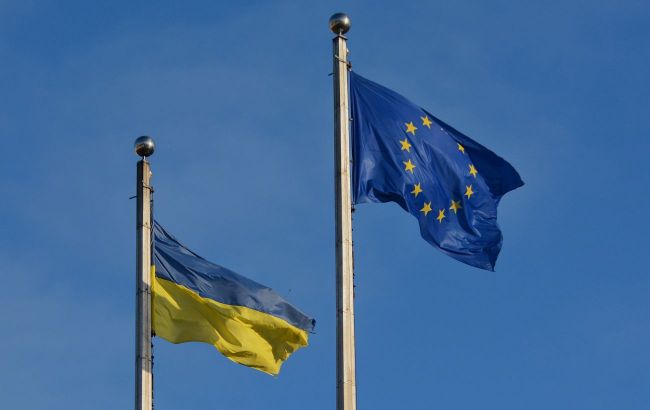EU Commission pressures member states to use frozen Russian assets for Ukraine – Politico
 Illustrative photo: The EC is pressuring EU countries to use Russia's assets for the benefit of Ukraine (GettyImages)
Illustrative photo: The EC is pressuring EU countries to use Russia's assets for the benefit of Ukraine (GettyImages)
The European Commission is increasing pressure on EU governments that cannot agree on financing Ukraine, Politico reports.
The European Commission is increasing pressure on EU governments that have not yet been able to agree on financing aid to Ukraine. In particular, if countries do not agree to use frozen Russian assets to rebuild Ukraine, they will have to find the money themselves — or agree to the unpopular option of joint borrowing, known as Eurobonds.
This applies to a reparations loan of €140 billion secured by Russian assets frozen within the EU. However, the implementation of the plan is currently stalled, as Belgian Prime Minister Bart De Wever refused to support the initiative during the last summit in Brussels. He cited the need for additional legal analysis. As a result, consideration of the issue has been postponed until at least December.
Plan B
As Politico notes, the European Commission is deliberately using the concept of a so-called plan B, joint debt obligations, as a tool of pressure. For fiscally conservative countries, such as Germany and the Netherlands, the prospect of new debt is unacceptable. France and Italy, on the other hand, with their own financial problems, cannot afford additional borrowing. In this situation, the use of Russian assets is seen as the lesser evil.
"€140 billion is a ton of money and we have to use it. We have to show that we’re not afraid," says Karel Lannoo, head of the Brussels-based Center for European Policy Studies.
According to Politico, a consensus is gradually forming among European governments: Russia's frozen assets are the only realistic source of funding for Ukraine's reconstruction. Initial doubts about the legality of this step are receding into the background — Kyiv's needs are growing, and Washington's position remains uncertain.
According to Politico analysts, the adoption of this plan will set a historic precedent: for the first time in history, the European Union will use another country's frozen state assets to help a victim of aggression. This decision will not only strengthen financial support for Ukraine but will also be an unprecedented step in international law.
Background
Ukraine's international partners continue to look for ways to cover the state budget deficit for next year. One of the key options is the creation of a so-called reparation loan that would allow frozen Russian assets to be used for the benefit of Ukraine.
At the same time, the European Union has postponed a final decision on the use of these assets. The final discussion of the issue is scheduled for December.
The delay does not pose any critical risks for Ukraine, as the state's financial needs for 2025 are already secured.
Despite the postponement, EU leaders stressed that they remain committed to supporting Ukraine and will continue to provide the necessary resources to strengthen its defense capabilities and counter Russian aggression.

